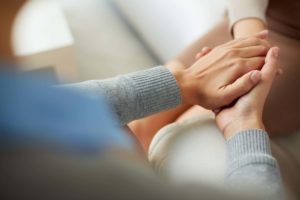New Jersey continues to struggle with high rates of substance use and addiction, especially linked to prescription opioids. Luckily, as a New Jersey resident, you have access to a variety of powerful recovery resources to help overcome addiction. In this article, we’ll take a look at the latest statistics on drug abuse in New Jersey, then provide resources available to you in the Garden State.
Opioids Remain a Risk in NJ
New Jersey has long struggled with high rates of opioid use, often linked to fatal overdoses. In fact, the National Institute on Drug Abuse (NIDA) found that almost 90% of fatal overdoses in New Jersey in 2018 were connected to opioid use. This has been a rising trend since 2000, increasing nearly every year. Luckily, the state saw a slight dip in overdose-linked deaths in 2019, according to NJ Spotlight.
The most common drugs linked to overdose deaths in New Jersey include:
- Fentanyl and substances containing fentanyl, which accounted for more than 2,000 drug-related deaths in 2017
- Heroin, which accounted for more than 1,600 drug-related deaths in 2017
- Cocaine, which accounted for more than 800 drug-related deaths in 2017
- Oxycodone, which accounted for more than 200 drug-related deaths in 2017
- Methadone, which accounted for more than 100 drug-related deaths in 2017
- Morphine, which accounted for more than 30 drug-related deaths in 2017
Counties that have been particularly hard hit by drug-related deaths include:
- Essex, which saw more than 300 drug-related deaths in 2018 and more than 400 in 2019
- Camden, which saw more than 300 drug-related deaths in both 2018 and 2019
- Middlesex, which saw more than 200 drug-related deaths in both 2018 and 2019
- Ocean, which saw more than 200 drug-related deaths in both 2018 and 2019
- Monmouth, which saw more than 200 drug-related deaths in 2018 and more than 100 in 2019
Government Steps In to Combat Opioid Crisis
According to NJ Spotlight, the New Jersey state government is increasing its efforts to stem the tide of opioid addiction. Through increased funding, access to treatment resources, and training for clinicians, the state seeks to put its muscle behind slowing the rate of opioid addiction and overdoses. These efforts include:
- More than $1.6 million in state funding for counties hit hard by opioid-related deaths
- Supplying more than 50,000 doses of the overdose prevention drug Narcan to law enforcement and libraries across the state
- Expanding Medicaid insurance coverage for addiction treatment on behalf of individuals who don’t have access to private health insurance
- Training on Medication Assisted Treatment for clinicians in Camden and Newark
- Training more than 75 first responders to assist with overdose prevention and care
- Sending 700 New Jersey residents charged with drug crimes into treatment rather than incarceration
- Expanding access to Medication Assisted Treatment to more than 2,000 inmates in state prisons
These efforts won’t stop the state’s opioid crisis entirely. But they will increase the quality and availability of resources for people struggling with addiction, particularly those who may not have easy access to addiction treatment programs.
Addiction Recovery Resources in NJ
 Beyond government programs, New Jersey’s recovery organizations have taken proactive steps to help communities overcome addiction. These include local and regional associations, 12-step groups, and other programs dedicated to helping New Jersey residents recover. Below we’ve compiled a list of some of the leading recovery resources available in the state.
Beyond government programs, New Jersey’s recovery organizations have taken proactive steps to help communities overcome addiction. These include local and regional associations, 12-step groups, and other programs dedicated to helping New Jersey residents recover. Below we’ve compiled a list of some of the leading recovery resources available in the state.
Coalition for Addiction Recovery Support
- The Coalition for Addiction Recovery Support is a prominent New Jersey-based association that provides “recovery support services” through a series of member organizations. These services help individuals who are undergoing treatment for addiction with many of their needs, including finding peer support groups, securing sober housing, and getting educated about substance use risks. They have a detailed resource map that helps you find programs near your home.
The Hansen Foundation: Sober Housing
- For individuals seeking sober living options in New Jersey, the Hansen Foundation is a charitable nonprofit that provides scholarship-funded sober housing at two locations in the state. Though sober living is just one component of recovery, having a secure and safe living environment can play a major role in reaching lasting sobriety.
The Ammon Foundation: Recovery Scholarships
- Another New Jersey-based charitable organization, the Ammon Foundation, provides more than $100,000 in scholarship funding each year for individuals in recovery who want to continue their education. Past scholarship recipients have attended schools including Thomas Edison State University and studied to work in drug and alcohol counseling. In addition to the scholarship funding, individuals receive academic support and coaching to help them successfully complete their studies.
Collegiate Recovery Program: For Students
- For local students already attending college who are struggling with addiction, the College of New Jersey provides a Collegiate Recovery Program for their students, which includes dedicated substance-free housing, university-sponsored addiction counseling, and access to peer support groups and 12-step meetings. This is one of a handful of universities that provide a dedicated recovery community.
Family Preservation Program: For Loved Ones
- Because addiction doesn’t exist in isolation, family members and friends may also need resources to help their loved ones and themselves through the recovery experience. New Jersey nonprofit CFC Loud N Clear Foundation provides a “sober social community” for family members and their loved ones in recovery through their Family Preservation Program, which provides weekly support groups and educational resources as families grapple with addiction.
12 Step Recovery Groups: AA, NA, and Al-Anon
- New Jersey is also home to national organizations that seek to provide safe spaces for people in recovery, including chapters of Narcotics Anonymous, which also provides online sessions, and Alcoholics Anonymous, which offers online and virtual meetings, as well. These 12-step groups play a vital role in keeping people in all stages of recovery connected to a welcoming and supportive community. You can read more about how 12-step groups like Alcoholics Anonymous work.
Family members and friends can also join local Al-Anon programs for peer support and discussion. These groups function similarly to Narcotics and Alcoholics Anonymous but provide space for family members and friends to support each other as their loved ones recover from addiction.
Finding Recovery Resources that Work For You
 While there are a variety of different resources available to New Jersey residents looking to better understand and manage addiction issues, it can be intimidating to know where to turn. A good place to start is often a local peer support group like Narcotics or Alcoholics Anonymous or Al-Anon. These groups are typically deeply connected to the local recovery community and can guide you to treatment programs and other resources that actually work.
While there are a variety of different resources available to New Jersey residents looking to better understand and manage addiction issues, it can be intimidating to know where to turn. A good place to start is often a local peer support group like Narcotics or Alcoholics Anonymous or Al-Anon. These groups are typically deeply connected to the local recovery community and can guide you to treatment programs and other resources that actually work.
Another resource are reputable treatment centers whose staff will be connected to state resources and organizations. Don’t be afraid to reach out to a treatment program even if you’re unsure whether or not you need treatment. Ethical providers will help you find community resources and assess your need for treatment. If you’re calling on behalf of a loved one, a reputable treatment provider can help them find a peer support group and speak with them privately about their recovery needs.
Don’t be afraid to ask for help. Although it can be daunting, overcoming addiction is possible. With state and local organizations plus treatment centers and peer support groups all waiting to help, you have the resources you need to begin your recovery. All it takes is that first phone call or outreach.
The team at BlueCrest Recovery Center is available 24 hours a day, 7 days per week to help answer your questions about addiction and provide you with resources and support.


















